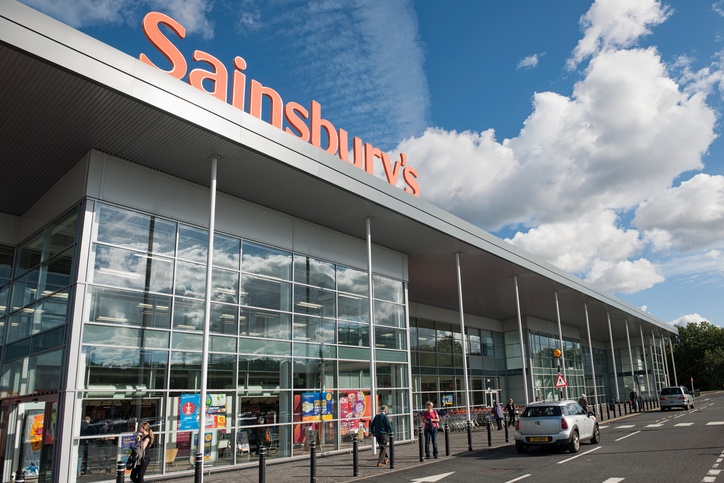ii view: Sales retreat at Sainsbury's
Tough comparatives have impacted results for this supermarket, but that is no surprise.
3rd July 2019 12:26
by Keith Bowman from interactive investor
Tough comparatives have impacted results for this supermarket, but that is no surprise.

First quarter trading for 16 weeks to 29 June 2019
- Total sales down 1.2% (excluding fuel)
- Like-for-like sales declined 1.6% (excluding fuel)
- Grocery sales fell 0.5%
- General merchandise sales down 3.1%
- Clothing sales fell by 4.5%
Chief executive Mike Coupe said:
"We continue to adapt our business to changing shopping habits and made good progress in a challenging market. In a tough trading environment, we gained market share in key general merchandise categories and in clothing, where we are now the UK's fifth largest retailer by volume."
ii round-up:
Founded in 1869, Sainsbury (LSE:SBRY) today has around 600 supermarkets, over 800 convenience stores and almost 900 Argos stores in both stand-alone and supermarket locations. it also operates Sainsbury's Bank. The retailer employs over 170,000 people.
Last year's football World Cup and Royal Wedding made for a tough comparison. Like-for-like or same store sales fell (-1.6%) during the quarter compared to a marginal gain last year (+0.2%). Poor weather also contributed, lowering demand in some seasonal clothing categories.
However, and in the wake of a recent update from Tesco (LSE:TSCO), the decline in sales came as no surprise. Market share gains in premium foods and consumer electronics provided optimism. As did a gain in share for its clothing business, moving it from sixth to fifth in volume terms.
Cost saving initiatives are helping to fund a push towards digitalisation. The roll out of self-scan equipment and a digital upgrade of Argos stores continues. Vegan and vegetarian demand are also in management sights, along with the removal of unnecessary plastics.
ii view:
Food retailing is a very tough market place. The rise of the discounters is ongoing, while higher end competitor Marks & Spencer (LSE:MKS) is placing a growing emphasis on its food offering. Tesco is also working hard on recovery. Sainsbury's positioning at the mid to upper end of the market arguably still plays well, and the business model at Argos appears to lend itself to online retailing. For investors, and with the Asda growth combination now removed, the dividend yield of over 5% still offers the core attraction.
Positives:
- Completed the integration of Argos, delivering £160 million in cost savings.
- A reduction in debt is being pursued.
- The total 2018 dividend rose by 7.8% on 2017.
Negatives:
- Accompanying management outlook comments remained cautious.
- Both Aldi and Lidl are gaining market share, aided by new store openings.
- The war online is growing – M&S are partnering up with Ocado (LSE:OCDO), Morrison's (LSE:MRW) with Amazon (NASDAQ:AMZN).
The average rating of stock market analysts:
Hold
These articles are provided for information purposes only. Occasionally, an opinion about whether to buy or sell a specific investment may be provided by third parties. The content is not intended to be a personal recommendation to buy or sell any financial instrument or product, or to adopt any investment strategy as it is not provided based on an assessment of your investing knowledge and experience, your financial situation or your investment objectives. The value of your investments, and the income derived from them, may go down as well as up. You may not get back all the money that you invest. The investments referred to in this article may not be suitable for all investors, and if in doubt, an investor should seek advice from a qualified investment adviser.
Full performance can be found on the company or index summary page on the interactive investor website. Simply click on the company's or index name highlighted in the article.